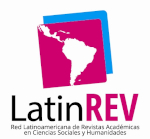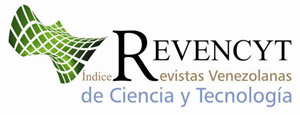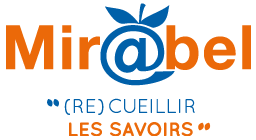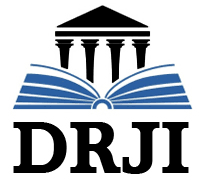Gamification and game based learning as teaching strategies
Keywords:
gamification, learning, games, strategies, teachingAbstract
This work has as general objective: epistemologically recognize through contributions the need to apply gamification and game-based learning as strategies for teaching in the university context. These significant functions will be consistent with the real needs of the population, making it possible to obtain significant knowledge and view education from perspectives that could be considered satisfactory in educational work. It is legally based on the Constitution of the Bolivarian Republic of Venezuela, (CRBV, 1999), which calls for the cohesion of humanity linking social axes, in order to correct attitudes in the teacher at the time of fulfilling their functions, thus reinforcing technological, philosophical, ontological criteria, among others, which must be present in the transfer and construction of knowledge and social facts. In this work, the mechanics, objectives and motivation were analyzed from the point of view of the games to be applied in a university learning environment, planning a solution that allows applying these associated mechanics to a learning environment with the aim of improving and checking the knowledge of the students through web platforms and recreational applications.
Downloads
References
Bunchball, I. (2010). Gamification 101: An Introduction to the Use of Game Dynamics to Influence Behavior.
Carse, J. P. (1986). Finite and Infinite games: A vision of life as play and possibilities. New York: Ballantine.
Asamblea Nacional (2000). Constitución de la República Bolivariana de Venezuela. Gaceta Oficial Nº 5.453 Extraordinario del 24 de marzo de 2000. Caracas, Venezuela.
Deterding, S., Dixon, D., Khaled, R., & Nacke, L. (2011, September). From game design elements to gamefulness: defining gamification. In Proceedings of the 15th international academic MindTrek conference: Envisioning future media environments (pp. 9-15).
Díaz de Cossio, R. (1998). Los desafíos de la educación superior mexicana. Revista de la Educación Superior, 106(2), 5-12
Durall Gazulla, E., Gros Salvat, B., Maina, M. F., Johnson, L., & Adams, S. (2012). Perspectivas tecnológicas: educación superior en Iberoamérica 2012-2017.
http://openaccess.uoc.edu/webapps/o2/bitstream/10609/17021/6/horizon_iberoamerica_2012_ESP.pdf
Durón, T. L. & Oropeza, T. R. (1999) Actividades de estudios: análisis predictivo a partir de la interacción familiar y escolar de estudiantes de nivel superior. Documento de trabajo, facultad de Psicología, Universidad Nacional Autónoma de México.
González Tardón, C. (2014). Videojuegos para la transformación social. Aportaciones conceptuales y metodológicas. Tesis Doctoral. Universidad de Deusto, España
Gros, B. (2007). Digital games in education: The design of games-based learning environments. Journal of Research on Technology in Education, 40(1), 23-38.
Gros, B. (2009). Certezas e interogantes acerca del uso de los videojuegos para el aprendizaje. Comunicación: revista Internacional de Comunicación Audiovisual, Publicidad y Estudios Culturales, (7), 251-264.
Jeres, O (2015). Aprendizaje activo, diversidad e inclusión, enfoque y metodología. Universidad de Chile 1era. Edición.
Kapp, K. M. (2012). The gamification of learning and instruction: game-based methods and strategies for training and education. John Wiley & Sons.
Lee, J. J. & Hammer, J. (2011). Gamification in Education: What, How, Why Bother? Academic Exchange Quarterly, 15(2).
Lee, J. J., Ceyhan, P., Jordan-Cooley, W., & Sung, W. (2013). Greenify: A real-world action game for climate change education. Simulation & Gaming.
Llagostera, E. (2012). On gamification and persuasion. Proceedings of the SBGames, Rio de Janeiro, Brazil, 2-4.
Mcgonigal, J. (2011). Reality is broken: Why games make us better and how they can change the world. Penguin
Prensky, M. (2006). Don't bother me, Mom, I'm learning: How computer and video games are preparing your kids for 21st century success and how you can help!. St. Paul, MN: Paragon house. http://www.uoc.edu/uocpapers/5/dt/eng/prensky.html
Pretelín Ricárdes, Ángel (2014), Gamification
Sawyer, B., & Smith, P. (2008, February). Serious games taxonomy. In Slides from the Serious Games Summit at the Game Developers Conference.
Smith-Robbins, S. (2011). This game sucks”: How to improve the gamification of education. EDUCAUSE review, 46(1), 58-59.
Smith, S., (2011): “This Game Sucks”: How to Improve the Gamification of Education. En EDUCAUSE Review, Vol. 467, N. 1, 58-59.
Vargas, R. (2013). La gamificación al servicio de nuevos modelos de comunicación surgidos de la cibercultura. Universidad de Sevilla
Víctor R. Huaquín M. (2007). Psicologia Del Aprendizaje Escolar. Texto de apoyo didáctico para la formación del alumno.
Werbach, K. (2013). Gamification.
Published
How to Cite
Issue
Section
License
Copyright (c) 2023 José Antonio D'Santiago García

This work is licensed under a Creative Commons Attribution-NonCommercial-ShareAlike 4.0 International License.





















